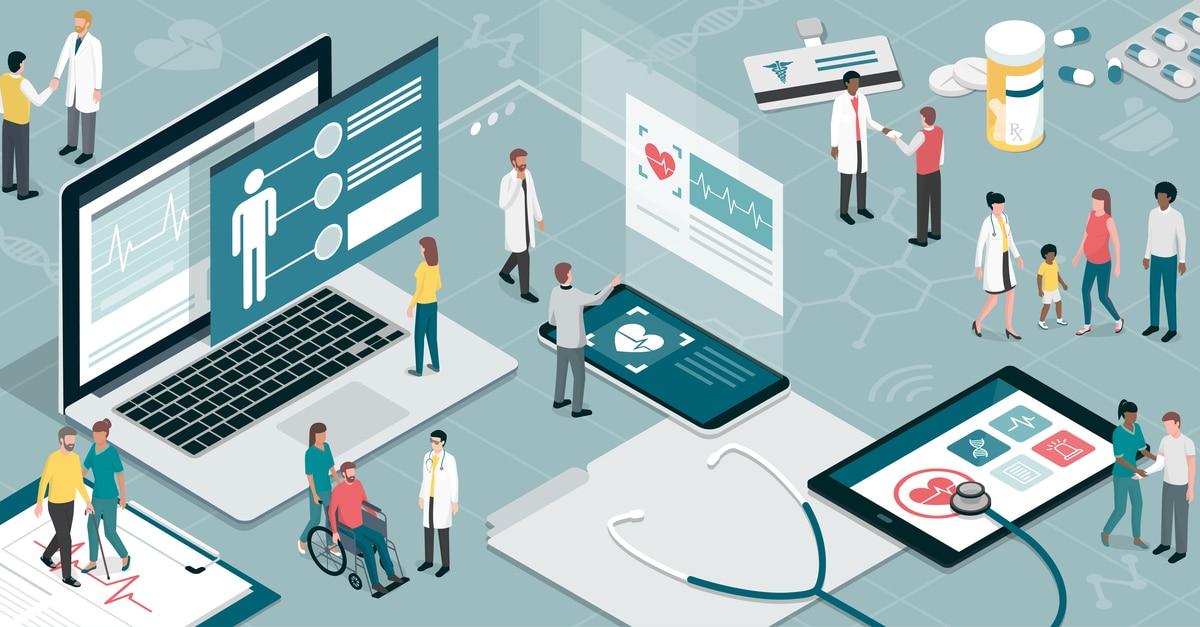Introduction
Under the European Medical Device Regulation (MDR), medical device manufacturers must support their products’ benefit-risk profile with robust clinical evidence. When there exist gaps in the clinical datasets available, or when the clinical data do not cover the entire lifetime of the medical device under scrutiny, then manufacturers are required to generate further evidence by means of Post Market Clinical Follow-Up (PMCF). While PMCF activities might seem like a rather burdensome exercise, these activities don’t need to be designed as randomized controlled trials (RCT) necessarily. In fact, there may be value in gathering different types of clinical data such as real-world data (RWD), also referred to in clinical sciences as real-world evidence (RWE).

RWE encompasses different types of data that are generated outside of an experimental environment, such as data collected in the context of observational studies, registries, or surveys targeting physicians or patients. Not only is this type of clinical data considered an acceptable form of PMCF, but RWE can be crucial in certain circumstances because it sheds light on the actual use of a medical device in clinical practice and may contribute to identifying relevant emerging risks. Furthermore, because RWE is not derived from experimental settings, this type of data can easily be gathered from larger patient populations than those generally included in RCTs. Thus, RWE not only has the potential of fulfilling PMCF regulatory requirements, but it can also be a valuable source of information with respect to market trends and needs. As a result, RWE is gaining momentum as a valuable source of clinical information.
Certain notified bodies (NB) have encouraged collection of RWE in the form of registries and patient-reported outcomes (PRO) as crucial data sources with respect to PMCF. Manufacturers should then consider the value as well as the possible challenges related to generating RWE for PMCF purposes.
Registry Studies
Registries focused on a specific medical device constitute a valuable tool to capture the safety and surveillance outcomes of the device under evaluation over long follow-up times and virtually over the entire lifetime of the product. When robustly designed, registries have the potential to also investigate performance outcomes in specific sub-populations that might have gone understudied in clinical investigations, and the data obtained from this type of studies can therefore bridge existing gaps in a device’s supporting evidence.
Although device registries can share a number of characteristics with other registry types such as procedural registries, properly and strategically designing a device registry to address the unique features of the device under evaluation is of critical importance to the quality of the data that will be generated. For instance, whenever possible these registries should include the device’s unique device identification (UDI) number as well as manufacturer, product name, lot and catalog number, etc. In addition, it is critical for the registry to be adaptable to any relevant need that might arise during the lifecycle of the device, and that adverse events be duly handled and reported as they would be in any other type of study. Furthermore, device registries designed to address specific hypotheses on the medical device under scrutiny and reliant on adequate statistical analysis methods can result in high-quality clinical data and therefore valuable safety and performance outcomes relevant to the subject device. Because of its clinical relevance and scientific validity, the RWE generated from properly designed and statistically powered device registries can be used in the context of PMCF activities to satisfy MDR requirements.
PRO & ePRO
Similarly, patient-reported outcomes (PRO, ePRO when collected digitally) constitute a valuable type of RWE that can be leveragd in the context of PMCF activities. Different NBs have expressed positive feedback on the acceptability of PROs collected through PMCF surveys on specific medical devices. Depending on the type of medical device under scrutiny and on its risk classification and intended users, it may be more or less relevant to collect data directly from patients as compared to physicians. For instance, certain medical devices intended for at-home use such as glucose-monitoring or other types of measuring devices are suitable for PRO collection. Similarly, certain devices with embedded connectivity features also have the potential to generate PROs, especially valuable for the measurement of safety and performance outcomes of the device under scrutiny. For PRO surveys to be considered acceptable forms of PMCF, they have to be designed to collect device-relevant clinical endpoints, possibly over the course of the device’s lifecycle –notably, usability endpoints are not acceptable forms of PROs for PMCF purposes. In addition, the PROs collected in the context of PMCF should be statistically powered as relevant to the type of medical device under evaluation to ensure the scientific validity of this particular form of RWE.
Conclusions
With increasingly larger support from NBs, registry studies and PROs are gaining momentum as critical data sources in PMCF. Because of their observational nature, collecting these data does not require the same efforts that RCTs do; nonetheless, proper planning and strategic designing of these activities is key to the success of PMCF endeavors. Similarly, selecting the right platform to execute these real-world studies is also of crucial importance in order to ensure data quality, usability, and reusability.
To learn more about how Castor can support your PMCF program, host your device registry, or collect PROs on your device, contact us here.